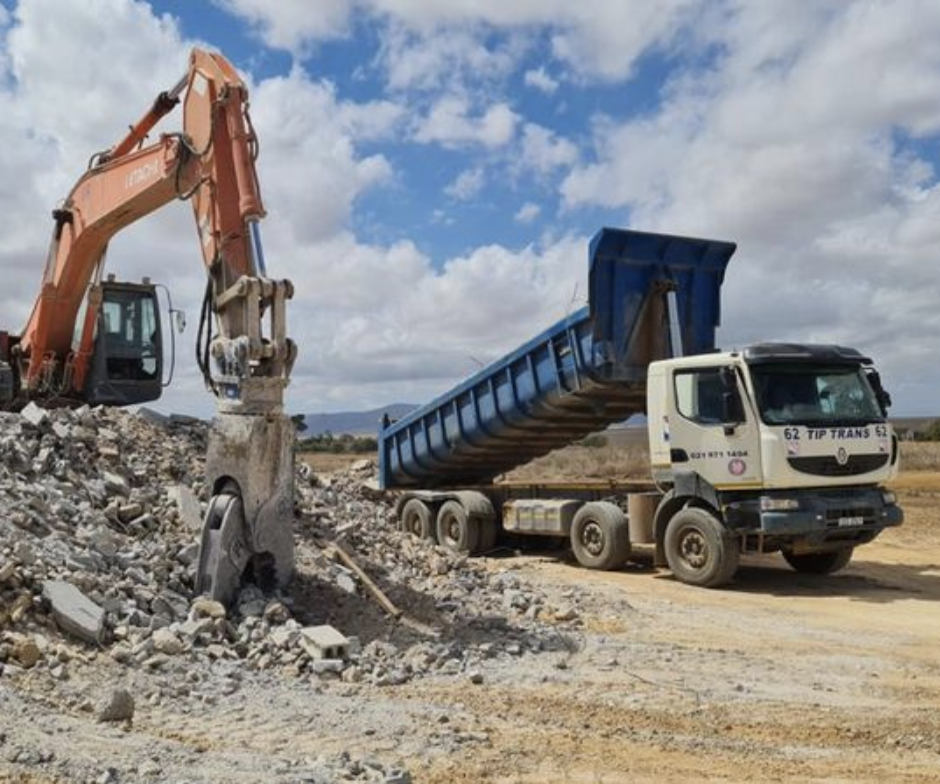In today’s competitive and fast-moving industrial environment, the transport of construction and agricultural materials must be managed with reliability, efficiency, and well-developed cost control. Whether moving aggregates, cement, machinery, grains, or fertilisers, modern fleet management has become as much about data and technology as about engines and drivers.
It means that managing a fleet of trucks efficiently is not simply about owning vehicles – it’s about strategic planning, digital monitoring, maintenance discipline, and strong human resource management. When these elements are aligned and interlinked, the operation can save time, lower costs, and ensure customer satisfaction.
Strategic fleet planning and vehicle selection
Effective fleet management begins long before a truck’s engine is switched on. There must be a clear understanding of what is being transported, where it must go, and under what conditions. Construction fleets often need powerful tipper trucks and cement mixers that can handle heavy loads and rough terrain. Agricultural fleets, by contrast, may require bulk grain carriers, refrigerated trucks, or flatbeds for equipment and fertilisers. Selecting the right vehicle for the job improves both reliability and fuel efficiency.
Preventative maintenance and downtime reduction
- Fleet reliability depends heavily on proactive maintenance rather than reactive repair. Trucks transporting heavy or abrasive materials – like gravel, lime, or soil – are particularly vulnerable to mechanical wear. Implementing a structured preventive maintenance programme ensures that vehicles are serviced before issues become costly breakdowns.
- Many fleet operators now use telematics-based predictive maintenance, which relies on onboard sensors and diagnostic systems to alert managers to potential problems in real time, such as low oil pressure, brake wear, or overheating; all can be flagged before failure occurs.
Smart fleet tracking and telematics
- Modern fleet management is increasingly driven by telematics technology – meaning that the integration of telecommunications and informatics is used to monitor vehicle performance and driver behaviour. GPS tracking systems allow managers to see the real-time location of each truck, optimise routes, and respond quickly to delays or detours.
- Telematics also records data on speed, idling time, braking patterns, and fuel consumption, allowing for precise analysis of driving habits. Excessive idling, for example, wastes fuel and increases wear on engines. By identifying these inefficiencies, managers can provide targeted driver training and reduce unnecessary costs.
- Integrated fleet management software can combine tracking with scheduling, load management, and customer communication. Dispatchers can assign loads more efficiently, while customers receive accurate delivery times. This transparency builds trust and allows logistics operations to respond dynamically to changing demands or weather conditions.
Fuel efficiency
- Fuel is one of the largest operating expenses in any fleet, often accounting for up to 40% of total costs. Managing fuel consumption is therefore a top priority. One of the simplest and most effective strategies is route optimisation – using digital mapping to avoid congestion and minimise empty return trips.
- Many modern fleets also implement fuel management systems that track every litre used, identifying anomalies or potential fuel theft. Fuel use can be significantly lowered by encouraging smooth driving habits, such as steady acceleration, reduced idling, proper gear usage, and regular tire pressure checks.
Driver management and safety culture
Even with the best technology, a fleet’s reliability ultimately depends on its drivers. Skilled and responsible drivers ensure vehicles are handled properly, schedules are maintained, and safety risks are minimised. Building a strong safety culture through regular training, performance feedback, and fair incentives, is crucial. Modern trucks now feature driver-assist systems such as lane-keeping alerts, collision warnings, and fatigue monitoring to enhance safety.
Digital integration and data-driven decision-making
- Today’s fleet managers are data analysts as much as logistics professionals. Every trip, load, and refuelling event produces data that can be used to make better decisions. Fleet management software platforms now allow operators to integrate maintenance schedules, route plans, fuel usage, and delivery records into a single dashboard.
- Analysing this data helps identify underperforming vehicles, high-cost routes, or inefficient loading practices. It also enables strategic forecasting – predicting when new vehicles should be purchased, when to retire old ones, and how to adjust routes during seasonal agricultural peaks or construction cycles.
- Modern fleet operations must comply with a host of regulations – covering road safety, emissions, load limits, and labour laws. Digital compliance tools help track vehicle inspections, driver licenses, and insurance renewals, ensuring nothing falls through the cracks.
Undoubtedly, managing a modern truck fleet for construction and agricultural transport is a balancing act of machinery, people, and information. The future of fleet management will continue to evolve toward automation, electrification, and intelligent logistics – where trucks, drivers, and managers operate as one connected system. For industries that depend on timely, dependable delivery of essential materials, mastering this integration isn’t just an option – it’s the road to enduring success.
Tip Trans: A proud history of quality, reliability, accountability, efficiency, and service excellence
At Tip Trans, we source, supply and deliver a full range of bulk commodities across the Western Cape in the civils, construction and agricultural industries. Offering affordable solutions customised to our clients’ unique needs, we have made significant investments in state-of-the-art equipment to provide the service excellence for which we have been renowned since 1964.
Our specialist fleet and logistics services within the civils and construction industries include:
Tip Trans Logistix
Tip Trans Logistix is changing the way people think about transportation and logistics. Our custom truck and trailer fleet is for specialised transport and construction services, ranging from 14- to 34-ton combinations. Our custom trailers include walking floors, back tippers, side tipper links, and more
Tip Trans Resources
The team at Tip Trans Resources can talk to you about our full range of aggregates and products. Their transport partnership with Tip Trans Logistix gives Tip Trans Resources access to a specialised fleet and the ability to offer cost-effective solutions, backed by an efficient delivery service across the Western Cape.














